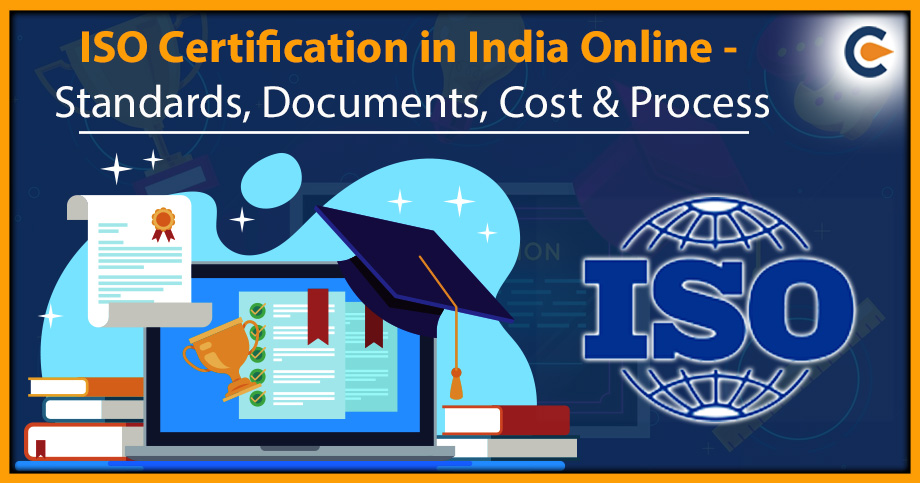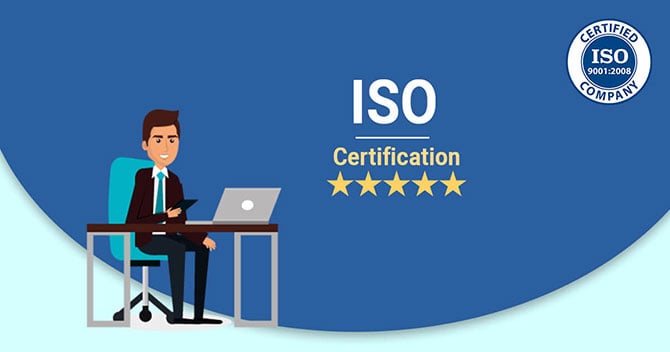ISO or the International Organization for Standardization, is a private, non-governmental organization responsible for the creation and publication of standards applicable across national boundaries. These standards cover a wide range of areas, including quality management, environmental management, information technology, and more. The goal of these standards is to provide a common framework for organizations to consistently produce high-quality products and services. ISO Certification is an internationally recognized quality management certification that provides organizations with a framework for improving their processes, products, and services. It demonstrates a commitment to meeting high standards of quality, reliability, and customer service. The certification is awarded by the International Organization for Standardization (ISO), a non-governmental organization that develops and publishes international standards. Obtaining ISO certification in India requires organizations to undergo a rigorous assessment process, which involves a comprehensive evaluation of their operations, processes, and products. By achieving ISO certification, organizations can improve their internal processes, increase their competitiveness, and demonstrate their commitment to quality and customer satisfaction.
Types of ISO Standards applicable in India
There are over 20,000 ISO standards, covering a wide range of industries and sectors, including quality management, environmental management, information technology, and more. Some of the most common ISO standards include:
- ISO 9001: Quality Management Systems
- ISO 14001: Environmental Management Systems
- ISO 18001: Occupational Health and Safety Management Systems
- ISO 22000: Food Safety Management Systems
- ISO 27001: Information Security Management Systems
The most relevant ISO standards for Indian businesses vary depending on the industry and sector. However, some of the most commonly adopted ISO standards in India include ISO 9001, ISO 14001, and ISO 18001. These standards are relevant for a wide range of industries, including manufacturing, service, and construction. Additionally, ISO 22000[1] is becoming increasingly relevant for food and beverage businesses in India, as the country’s food industry continues to grow and become more regulated. Other ISO standards, such as ISO 27001 and ISO 20000, are also becoming increasingly relevant for businesses in India, as the country’s information technology and service industries continue to grow.
Documents Required for ISO Certification in India
In order to obtain online ISO certification in India, you will need to submit the following documents:
- Company Registration or GST Registration
- Invoice Bills
- Organization Letterhead
- Organization Pan Card
- Any Other Relevant Document
Note that the exact set of documents required for ISO certification may vary depending on the standard being applied for (e.g. ISO 9001 for quality management, ISO 14001 for environmental management, etc.) and the specific requirements of the certification body. It’s recommended to consult with a knowledgeable consultant or the certification body to ensure that you have all the required documentation for your specific case.
Steps involved in Obtaining ISO Certification in India
- Detailed explanation of the ISO Certification Process
- Initial Assessment: The first step in the ISO certification process is to conduct an initial assessment of your organization’s current processes and systems. This will help determine the scope of the certification and identify any areas that need improvement.
- Preparation: Once the initial assessment is complete, the organization should start preparing for the certification process by developing and implementing the necessary policies, procedures, and systems to meet the requirements of the chosen ISO standard.
- Internal Audits: The organization should conduct internal audits to verify that their systems and processes are in compliance with the requirements of the chosen ISO standard.
- Certification Body Audit: Once the organization is ready, a team from the chosen certification body will conduct a certification audit. This audit will verify that the organization’s systems and processes are following the requirements of the chosen ISO standard.
- Certification Decision: The certification body will then decide on whether to grant certification based on the results of the certification audit. If certification is granted, the organization will receive a certificate that is valid for a specified period of time.
- Time frame for ISO Certification
The time frame for ISO certification in India can vary depending on the size & complexity of the organization, the standard being applied for, and the certification body selected. On average, the certification process can take several months to complete, but it can take up to a year or more in some cases. - Role of ISO Certification Bodies in the process
ISO certification bodies play a crucial role in the ISO certification process. They are responsible for conducting the certification audit, making a certification decision, and issuing the certificate if the organization is found to be in compliance with the requirements of the chosen ISO standard. Certification bodies must be accredited by the International Accreditation Forum (IAF) or a national accreditation body to ensure that they meet the requirements for ISO certification. The certification body must be impartial and not have any financial/other interests in the outcome of the certification process.
Cost of ISO Certification in India
- Overview of the expenses involved in ISO Certification
The cost of ISO certification in India can vary greatly depending on the size & complexity of the organization, the standard being applied for, and the certification body selected. Generally, the cost can include fees for the certification body, consultant fees for guidance and support, and internal costs such as staff time and resources needed to prepare for the certification process.
- Factors affecting the cost of ISO Certification
- Size & complexity of the organization: The cost of ISO certification can increase with the size and complexity of the organization as more time and resources are required to prepare and implement the necessary procedures and processes.
- Standard being applied for: The cost can vary depending on the standard being applied for, as different standards have different requirements and levels of complexity.
- Certification body selected: The cost of ISO certification can vary depending on the certification body selected, as different bodies have different fees and requirements.
- Consultant fees: The cost of using a consultant for guidance and support can vary depending on the experience and reputation of the consultant.
- Comparison of cost of ISO Certification in India with other countries
The cost of ISO certification in India is generally lower compared to developed countries such as the United States, Canada, and Australia, but it can still vary greatly depending on the factors mentioned above. For example, the cost of ISO 9001 certification in India can range from a few thousand to tens of thousands of rupees, while in developed countries the cost can be several times higher.
It’s vital to keep in mind that the cost of ISO certification is just one of the factors to consider when deciding to pursue certification. The benefits of certification, such as improved customer satisfaction and increased competitiveness, can often far outweigh the cost over the long term.
Conclusion and Future of ISO Certification in India
ISO certification in India can be a valuable tool for businesses looking to improve their competitiveness and customer satisfaction. The demand for ISO certification is likely to increase in the future as more businesses recognize the benefits of this important quality and environmental management system. To achieve the full benefits of ISO certification, businesses should approach the process with a commitment to continuous improvement and a focus on maintaining their systems and processes to meet the requirements of the chosen ISO standard. It is important to choose the right ISO standard, find a reputable certification body, plan ahead, and seek help from a consultant if needed.
Read Our Article: Important Aspect Of ISO Certification That Every Manufacturer Needs To Remember











